Bringing Food Waste Prevention Week to the Classroom
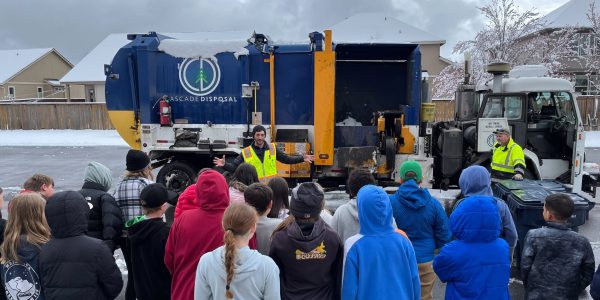
Written by Megan Schubel, temporary Youth Education Program Manager
Hard to believe, but the average Oregon household spends $1,800 on wasted and spoiled food each year, which comes out to $150 a month or $35 a week. In addition to the impact on your wallet, one third of all food is wasted, which has the same greenhouse gas emissions impact as 42 coal-fired power plants and uses the same water and energy as 50 million homes. It also makes up the largest category of waste at Knott Landfill which is expected to be full by 2029.
The Youth Education Team saw Food Waste Prevention this year, from April 1-7, as the perfect opportunity to reach out to students about preventing food waste and examining some other options than just throwing food in the trash. We celebrated by bringing our portable worm composting bins and the Hidden World lesson into five Bend-LaPine schools, reaching around 360 students. Additionally we represented The Environmental Center at the Sage Elementary Science Night in Redmond by sharing one of our worm bins with families and students. The Hidden World lesson is part of the six-lesson EarthSmart series our educators bring into 4th and 5th grade classrooms around central Oregon.
I had the opportunity to visit Ponderosa (5th grade), North Star and Jewell Elementary Schools in the Bend-LaPine School District. Another educator on our team, Wesley Yoder, visited Ponderosa (4th grade) and Lava Ridge Elementary Schools. All of these schools have student Green Teams which are working to build a more sustainable school community. In addition, Ponderosa and North Star commercially compost their lunch scraps. With this in mind, I felt like students already had a little background when we began to discuss in their classrooms how to rethink food waste. During the Hidden World lesson we watched a time lapse video of what happens to a bowl of fruits and vegetables left to rot over 72 days. This was definitely a conversation starter when it came to talk about how to reduce food waste. This rotting bowl of produce highlighted why we might have an “eat first” section of the refrigerator, how we can plan out our meals to use more perishable produce first (those strawberries and raspberries don’t last forever!) and how we can store food so that it will last longer.

After we discussed how to prevent food waste in the first place, we moved on to learn about how composting uses nature’s process of decomposition to make a nutrient-rich soil amendment or mulch for plants. Composting can range from backyard composting to commercial composting with yard debris pickup to worm composting. In Deschutes County, food waste is accepted in yard debris bins. I found it interesting that even though many students had yard debris pickup at home, their families are not currently collecting food scraps to then dump in the yard debris bin. This was the perfect opportunity to encourage students to have the conversation at home about collecting these food scraps for composting and divert food waste from our landfill.
Last but not least, as a highlight of the Hidden World lesson, students learned about vermiculture or worm composting. Worm composting is great for smaller spaces like apartments and if you only have vegetable and fruit scraps to compost. Worm bins also make great teaching tools. After discussing worm bin construction and worm anatomy, each pair of students received a petri dish of some of the castings, otherwise known as worm poop, some worms, a toothpick and a magnifying glass. Most students were captivated by watching the worms and even some of the most reluctant students were handling the worms by the end of the lesson. Students were amazed that these tiny creatures eat through a significant amount of fruit and vegetable scraps in a week.

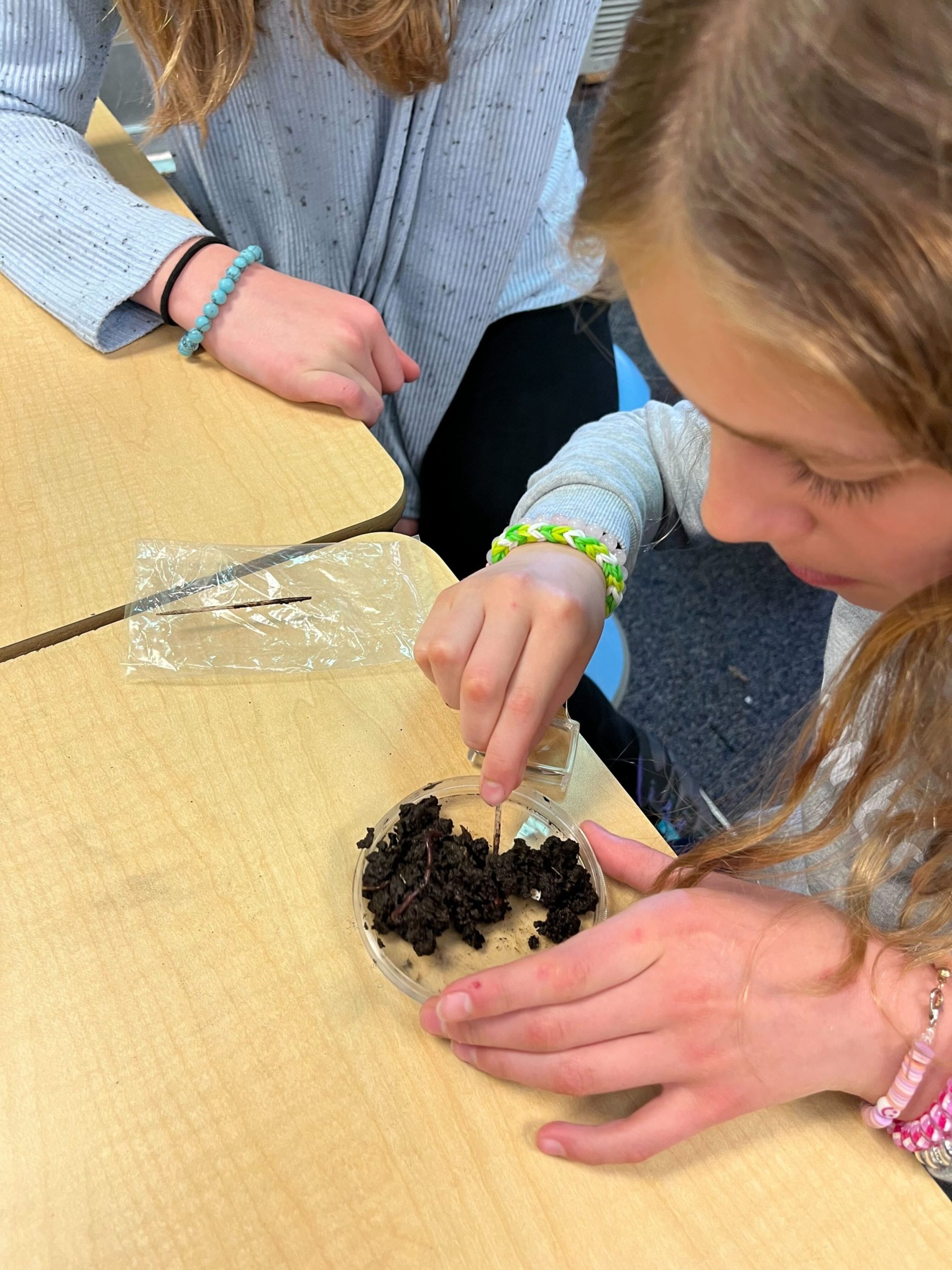
To cap off Food Waste Prevention Week, fifth grade students at Jewell Elementary got a special visit from Cascade Disposal. Students were able to see a recycling truck in action and talk with Taylor Bell, Operations Supervisor at Cascade Disposal, about the collection of yard debris and food waste and how that is commercially made into compost. Many students were curious about the working of the truck itself but they also had many great questions related to how industrial composting works at such a large scale.
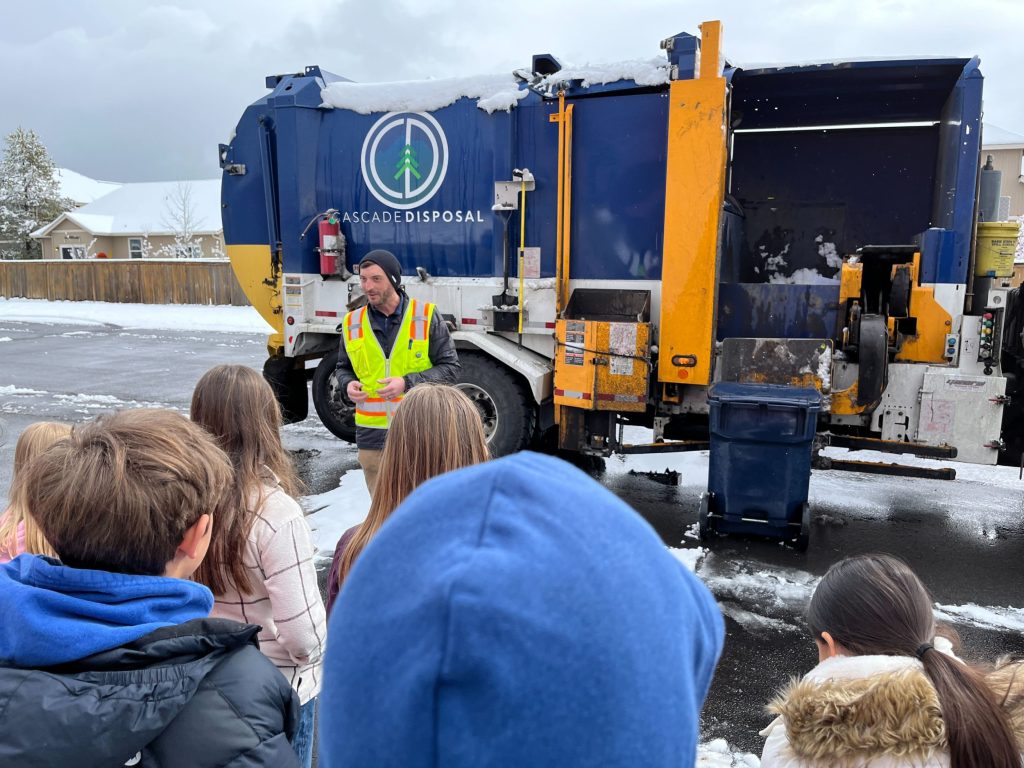
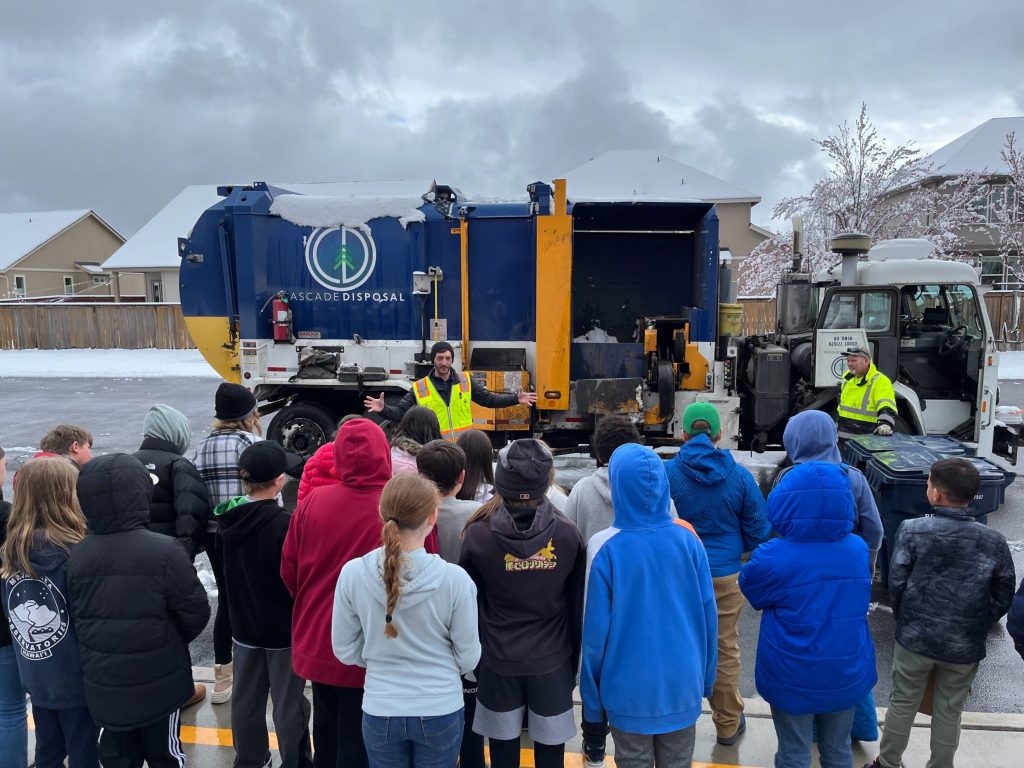
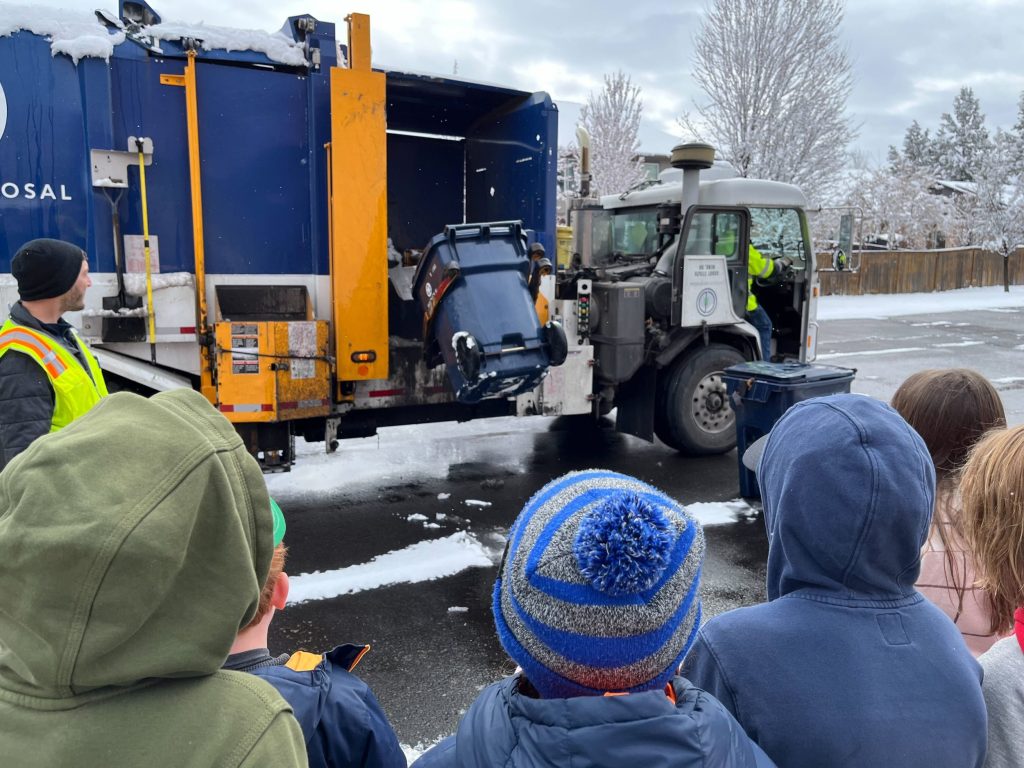
I had a blast during Food Waste Prevention Week educating students about the issue of food waste and what we can do differently to keep that food waste out of the landfill. Food waste prevention saves money, conserves resources, keeps food out of our landfill and prevents greenhouse gas emissions. Love food, not waste!
Also, check out this awesome informational video written and produced by Bend-LaPine School Green Teams!